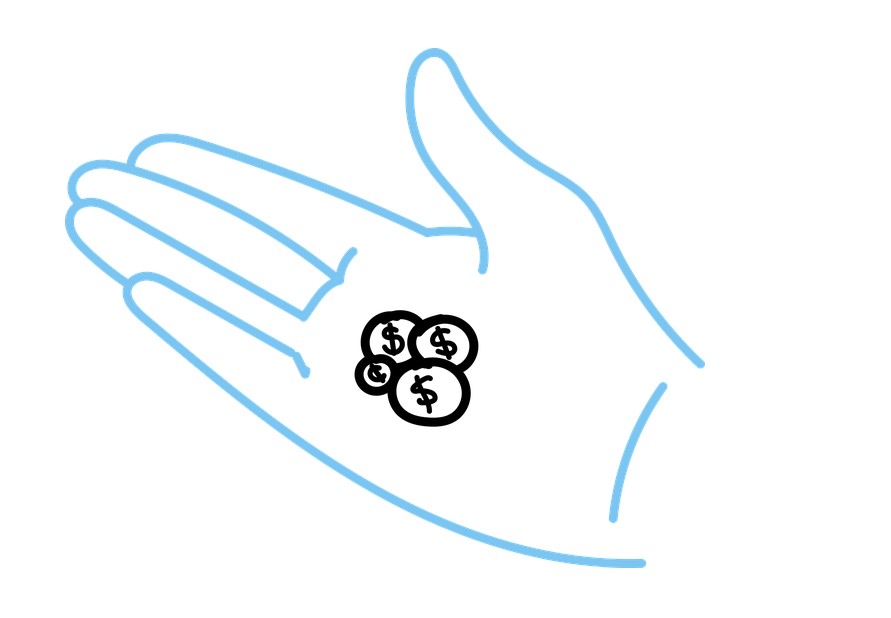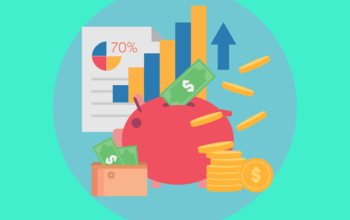You may have aced geometry and World History (or not), but chances are, personal finance wasn’t one of the courses offered in your high school. Yet here you are, in the real world, where credit is too easy to get and credit scores are too hard to understand.
If you had anyone who took the time to explain the importance of finances while you were young, great! You’re on a solid start because you have the foundational knowledge many people don’t.
But if you didn’t, you’re looking for information now, and that’s a good sign. As a young adult, your long-term finance needs seem far away. However, the sooner you get started understanding how credit, savings, and money works, the easier those goals will be to reach later.
These three financial tips are the gold mine to your future stability. Start them now while you’re young to help your future self out!
1. Learn How Credit Scores Work
Credit scores might not seem important to you yet. But this vague number could cost you or save you hundreds of thousands of dollars over your lifetime.
When you do need any kind of financing, a strong credit rating gets you lower interest rates. Depending on the size of the loan you’re getting, this could save you a lot of money in interest. Having a good credit score is particularly helpful when you buy a house or a car, or try to start a business.
There are five main categories that make up your credit rating. Some of these come with good financial spending habits; others will take time to accrue.
In the meantime, keep these credit score factors in the back of your mind as you spend your money:
- Credit history length – The sooner you start building good credit, the better, but don’t go overboard. One or two small credit cards or a car payment is fine to get you started.
- Credit inquiries – This one requires a careful balance of applying for credit, but only when you’re sure you are likely to get approved. A “hard pull” on your credit history can lower your rating, so try to keep this limited to two or three inquiries per year.
- Debt burdens – Also known as the “debt-to-income ratio,” this is a mathematical formula. It looks at how much debt you have in total and how easy it should be for you to pay it off. Your payment history is part of this equation.
- Payment history – Any time you’re more than thirty days past due on most credit cards and loans, it will “flag” on your credit report. Too many flags will lower your score and cause lenders to see you as a risk.
- Types of credit – This category is a small part of your score, but lenders like to see you have a healthy diversity of creditors. It shows you have a good financial character. Types of credit include credit cards, mortgages, installment loans, and consumer finances like u
Financial knowledge starts with understanding your credit score and builds in strength from there.
2. Spend Wisely
Shopping smart does not mean never buying anything you want. It simply means balancing out what you can afford with living well.
Some things are necessities for most of us. A lease or mortgage, car payments, utilities, and insurance premiums are probably going to follow you throughout your life.
You don’t have to live outside your budget, though. Yes, having a brand new car or a swanky home would be great. But if you stick with affordable while you’re young, you can get all those things when you’re older and financially set.
Shop around for the best deals on your utilities and insurance. Pay-as-you-go phone plans are competitive and legitimate now. Comparing car insurance premiums might net you a better deal for the same coverage.
The money you save with your strategic shopping can be used on other things, like bankrolling your savings account.
3. Start Saving Early
Some of the most influential financial advisers of all time will tell you that saving your money early is the key to a successful financial future. Dave Ramsey, for instance, suggests having a starter emergency fund of $1,000—after all your credit card debt is paid.
When you start reading books about financial advice, you’ll quickly see how your spending habits are affecting your potential future. Darren Hardy, author of the bestselling book, The Compound Effect, talks about this as getting involved in your choices. Every choice you make has an impact on your future, whether it’s a good impact or a bad one. Over time, these choices compound.
For instance, if you choose to skip the gym or eat unhealthily, you won’t notice the effects right away. But over time, they will become undeniable.
The same concept applies with your money. If you start saving small, you won’t notice the effects immediately. By the time you’re ready to really start cracking down, you’ll have a healthy nest egg.
Conclusion
There is no such thing as ‘too early’ to start thinking about your financial health. The sooner you get started, the faster you’ll have economic security and stability.
As a young adult, some of the best knowledge you can acquire is in the field of finances. Take those concepts and apply them to your life in general, and you’ll be a success anywhere you go!
Related Posts












